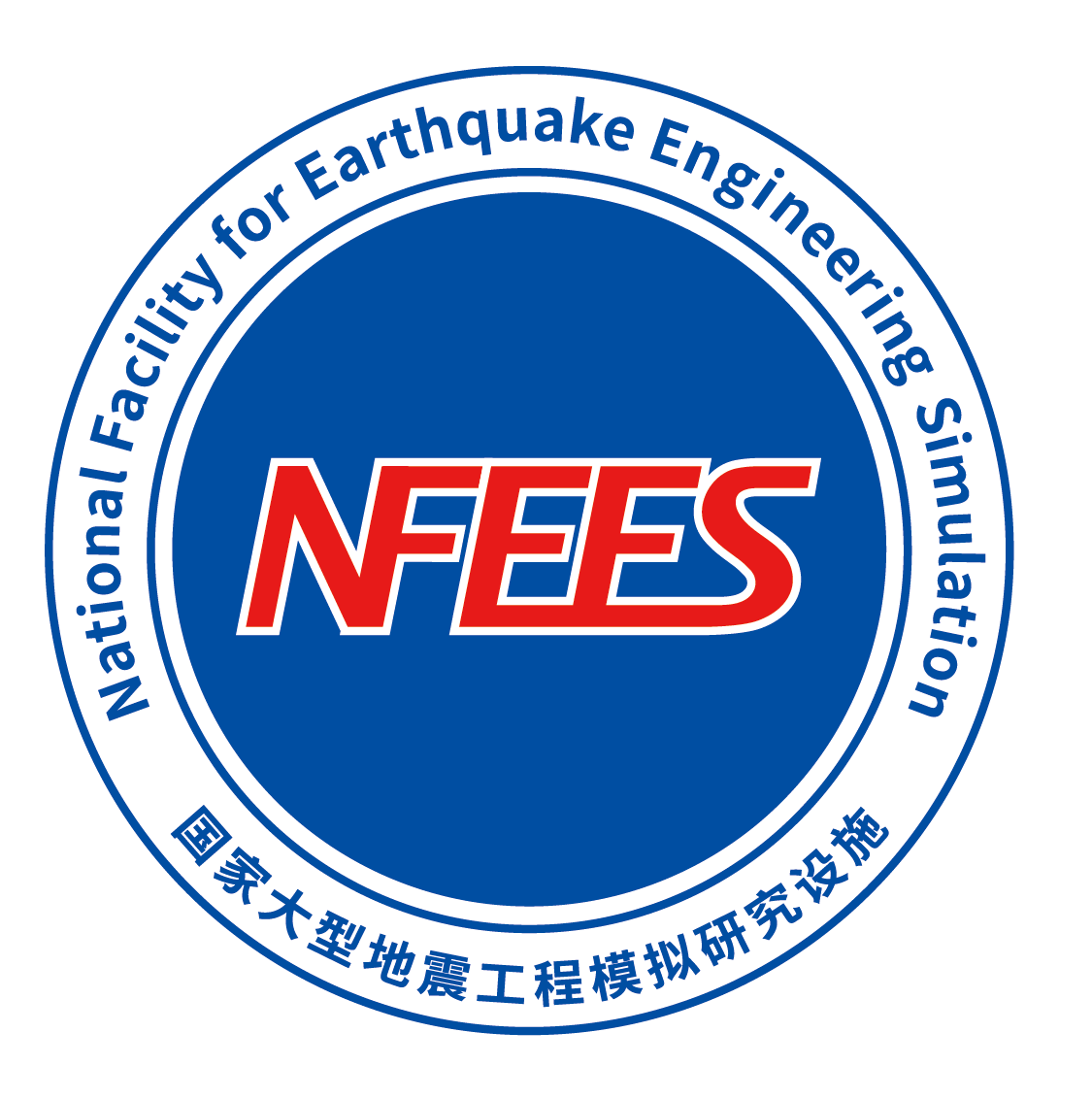Journal list menu
Export Citations
Download PDFs
Table of Contents
Investigation of nonproportional damping characteristics of structure with energy dissipation system
- First Published: 28 March 2023

In this study, the pseudo-excitation method is introduced to perform random spatial seismic response analysis of such a structure considering different damper arrangements. The analysis results show the effects of nonproportional damping characteristics due to these arrangements, and the nonproportional damping characteristic index can estimate the strength of these characteristics. Moreover, the virtual excitation method can be used to determine the weak parts of the structure.
Seismic performance analysis of steel frame structures with separated three-dimensional isolation
- First Published: 28 March 2023
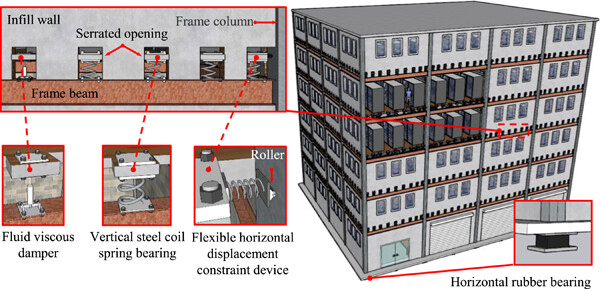
A separated three-dimensional isolation scheme for steel frame structures is proposed by installing horizontal isolation at the base and vertical isolation beneath the floor slabs. It can achieve a high isolation effect, mitigate the motion coupling, and restrain the rocking behavior significantly without any rocking constraint devices, thus protecting the structure and nonstructural components. Besides, the vertical load on vertical isolators is significantly reduced, making it easy to design and manufacture.
Seismic control of a smart structure with semiactive tuned mass damper and adaptive stiffness property
- First Published: 28 March 2023
Seismic performance of rocking-delayed spine frame system with base initial gaps
- First Published: 28 March 2023

This study proposed a rocking-delayed spine frame system that provides an initial gap at the side column bases of the spine frame. The hysteresis behavior of the proposed system was theoretically studied, and the cyclic loading test results of 16 specimens were examined to verify its performance. Subsequently, the seismic performance of the proposed system was investigated using nonlinear time-history analysis. The analysis results revealed the influence of the initial gap on the seismic responses.
Probabilistic analysis of seismic mitigation of base-isolated structure with sliding hydromagnetic bearings based on finite element simulations
- First Published: 22 June 2023
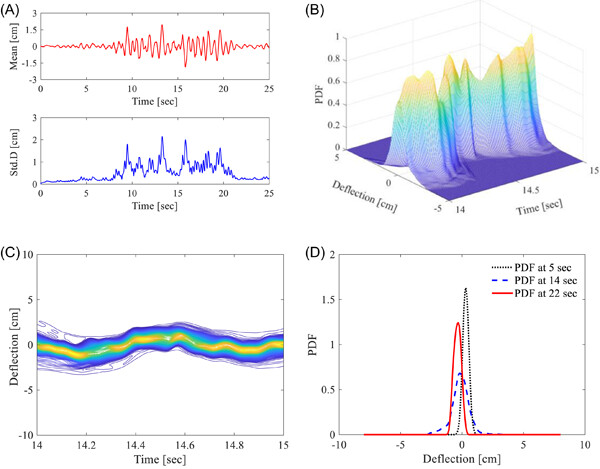
Carrying out a probabilistic analysis of seismic mitigation of base-isolated structures, considering the randomness associated with earthquake ground motions, is necessary. To this end, the stochastic seismic response and reliability analysis of base-isolated structures subjected to stochastic ground motions are conducted in this study, in conjunction with the probability density evolution method and the principle of equivalent extreme value event.
Efficient optimal seismic design method of passive energy dissipation systems based on the inelasticity-separated finite element method
- First Published: 22 June 2023
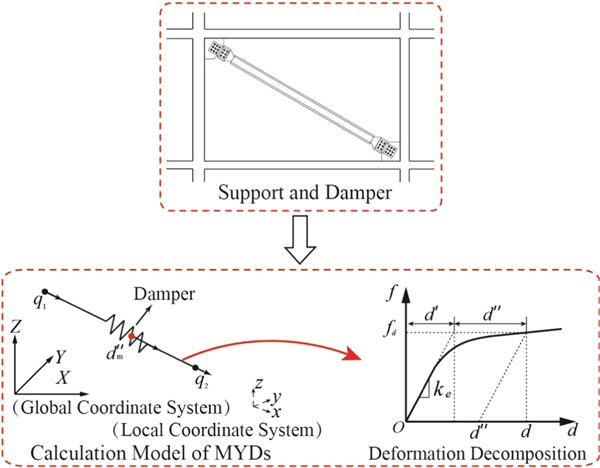
In this paper, a novel optimal design method for dampers was proposed based on inelasticity-separated finite element method (IS-FEM) and genetic algorithm. During the process of optimization, the proposed method enhances the searching ability near the feasible domain boundary and avoids the recalculation of structural tangent stiffness for seismic response analysis, so that the computational complexity of the algorithm can be reduced significantly.
Development and seismic behavior of an assembly composite damping self-centering brace
- First Published: 22 June 2023
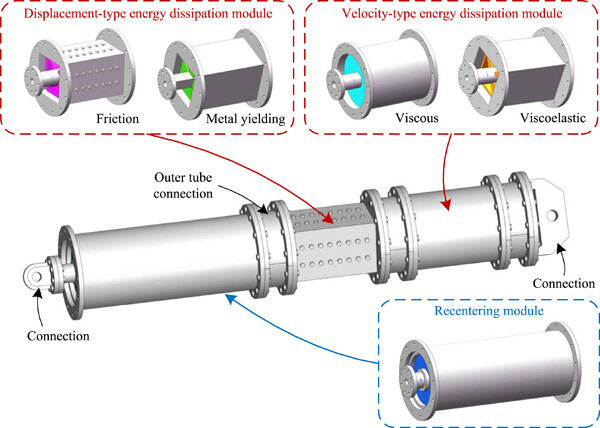
A new type of assembly composite damping self-centering brace is proposed to simplify the configuration, reduce the manufacturing cost, and improve its energy dissipation capacity, which is assembled by several modules in parallel with different functions. The brace exhibits stable and full flag-shaped hysteretic responses, and dissipates adequate energy during cyclic motion, with a high bearing capacity. The influences of design parameters on the hysteretic performances of the brace were studied.




